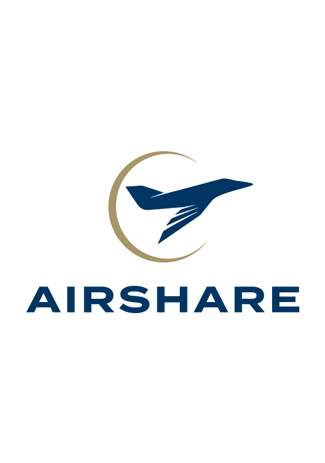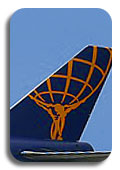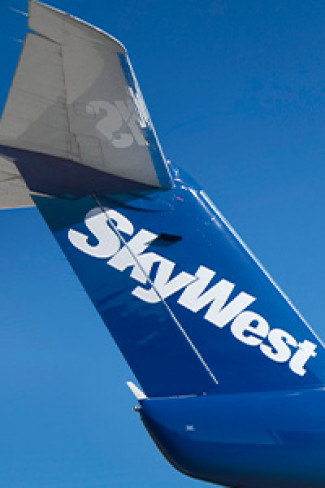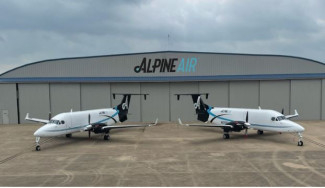Interview First Impressions
First impressions happen only once and are virtually irreversible. If a negative impression is set, you may lose the attention and interest of your interviewers. A good impression will captivate your interviewers; they will want to learn more about you.
People will derive an opinion from your attire, demeanor, body language and mannerisms.In an interview situation, your interviewers will establish their first impression based on whether or not they feel you match the corporate culture and that of a professional airline pilot.
Rules of the road for making a good first impression:
-
Timing:
The aviation industry is time driven and performance measures are based on timeliness. Allow yourself plenty of time to arrive at the location, just in case you have any difficulties that morning.Ideally, you want to arrive 10 minutes prior to your scheduled appointment. If you happen to arrive too early, visit the restroom for a bit of relaxation techniques such as slow, deep breathing. -
Manners:
Always be courteous and polite to everyone you meet - you never know who has what influence. - Appearance:
Dress the part of your position. Airline pilots are historically a conservative bunch. For a Part 121 interview, a suit is expected. A few points regarding appearance: neatly groom and cut your hair, above the collar for men; press your clothes; shine your shoes; wear conservative colors. Bottom line, ask yourself if you look put together.
- Handshake:
A weak handshake is a pet peeve of many people. How do you shake someone's hand? Are you a limp fish or a solid,firm grip? A weak handshake can imply lack of confidence or even a condescending attitude. You read that right I said a condescending attitude. Similar to kissing someone's hand or the Queen's ring. A firm grip will display self-confidence and respect for the person's hand that you are shaking. Practice with friends and family ask them to comment on your grip honestly. You need to know what kind of shaker you are.
Follow these simple steps to shake someone's hand properly.
-
Extend your right hand to meet the other person's right hand.
-
Point your thumb upward toward the other person's arm and extend your arm at a slight downward angle.
-
Wrap your hand around the other person's hand when your thumb joints come together.
-
Grasp the hand firmly and squeeze gently once. Remember that limp handshakes are a big turnoff, as are bone-crushing grasps.
-
Hold the handshake for 2 to 3 seconds.
-
Pump your hand up and down a few times to convey sincerity. (This gesture is optional.)
Note:A two-handed handshake is not for first meetings. It is a sign of real affection, and you should reserve it for friends and intimates.
-
Excessive touching:
Some folks will actually touch others too much if they are involved in an uncomfortable situation. You know the type, the person who constantly touches your arm as they shallowly laugh. This is plain and simple an invasion of space. It gives the receiver a sense of falseness about the other person. Obviously, this is not a good tactic in an interview. -
Attitude:
Be positive. Attitudes show in everything you say and do, even if you think you are hiding it. Stay focused on where you are and what it means to you this is an exciting day for you! -
Be open and relaxed:
Body language speaks louder than words so stand tall,sit upright (even if your interviewer is not) and face forward, make eye contact and smile. Actively relaxing will bring out your natural confidence. -
And please remember to turn off your cell phone.
Keep in mind that you only have one chance to create a first impression, a lasting impression that may affect the outcome of your interview. People remember how you make them feel strive to make them feel relaxed and you will naturally relax yourself.
Lori Clark is the principal of Clark Aviation Consulting. As a former Manager of Pilot Recruiting for many years, she interviewed thousands of airline pilots and has an extensive knowledge of what airline pilot boards are looking for. Clark can help pilots understand what an interview board is looking for and how they are perceived. She offers simple but effective techniques that help pilots better present themselves before airline boards. For more information, please visit Clark Consulting at http://www.FlyTheLine.com orhttp://ClarkConsulting.blogspot.com.
©2008 Clark Aviation Consulting, All Rights Reserved. Reprints with permission.
-

Airshare 07/22/2024
-
Alpine Air 07/18/2024
-

Atlas Air 07/17/2024
-

Piedmont Airlines 07/10/2024
-

SkyWest 07/09/2024
 AIRLINE PILOT CENTRAL
AIRLINE PILOT CENTRAL